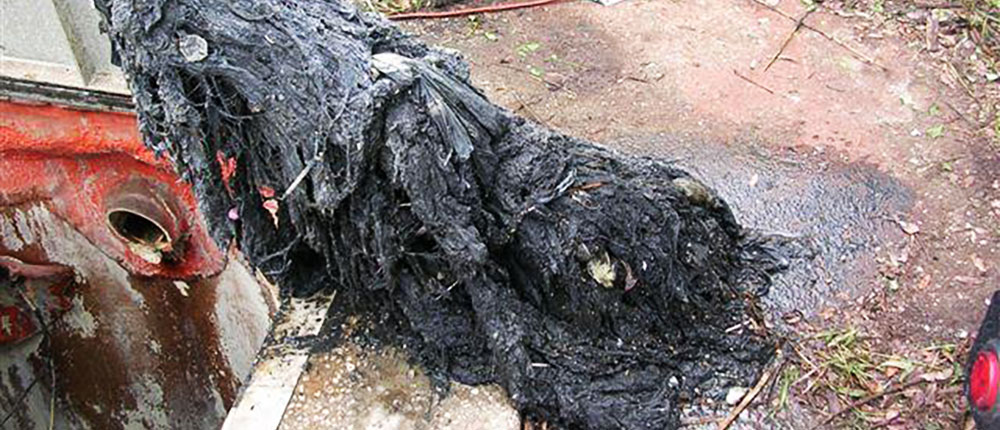What Not to Flush
JEA’s Wastewater Treatment System is designed to dispose of human waste and toilet paper only. Many other commonly flushed items cause damage to the pipes in your home or business, as well as to JEA’s wastewater collection system and the treatment process. Flushing the wrong things can also lead to the formation of what are called fatbergs, large coagulations of non-biodegradable sewage consisting of wipes, grease, and other items not meant to be flushed.

Facts About Fatbergs
Fatbergs can lead to sewage backups, sewer overflows and groundwater/surface water contamination, which can be harmful to human health and our environment. They also can damage JEA's wastewater treatment equipment and increase repair costs, which in turn could affect customer rates.
You can help to prevent fatbergs in the wastewater system by avoiding flushing any of the items described below.
Many items that are labeled “flushable” or “disposable” are actually not safe to flush.
Top 10 Things to Not Flush or Put Down the Drain
- Baby Wipes
- Fats, Oils, and Grease
- Food/Trash/Non-Biodegradables
- Cleaning Products
- Pads/Rags/Cloth/Chemicals/Disposable Gloves
- Cotton Balls/Q-tips/Dental Floss
- Disposable Diapers
- Feminine Products (including applicators)
- Hair/Hair Weave
- Medications/Pharmaceuticals/Syringes/Needles
- Paper Towels/Tissues/Plastic Bags
Hazardous/toxic chemicals introduced into the sanitary sewer system interfere with the wastewater treatment process.
Baby Wipes
When you flush a baby wipe down the toilet, you are creating a situation that could clog your pipes and your sewer system. These wipes do not dissolve like toilet paper. They hang around in pipes and in the sewer system, often with horrid results. They often combine with grease in the system to form a hard residue that could cause a serious backup. Even though the packaging on some wipes now says they are manufactured with “safe flush technology,” we recommend you keep them out of your toilet entirely and dispose of them in the trash.
Blocked drains at homes and businesses are usually caused by wipes, sanitary products, paper towels, fats, oils or grease.
Fats, Oils and Grease
Cooking fat, oil and grease (FOG) can clog the pipes at your home and in our system and cause sewage to back up into your home, yard, street and waterways. Not only will you have to pay a plumber to fix things, JEA will have to pay for these cleanups, too, which can lead to higher utility bills.
Learn About Proper FOG Disposal
Related Links
-
Sanitary Sewer Overflows
A Sanitary Sewer Overflow is when sewage (or wastewater) overflows from the sewer collection system and can happen for a number of reasons.
-
Industrial Pretreatment
JEA Industrial Pretreatment is responsible for administration of the National Pretreatment Program in areas that discharge wastewater into JEA-owned wastewater facilities. JEA has been recognized for its robust pollution prevention programs, community outreach efforts, and internal process improvements and controls leading to dramatic reductions in pollutant loadings to JEA Water Reclamation Facilities.